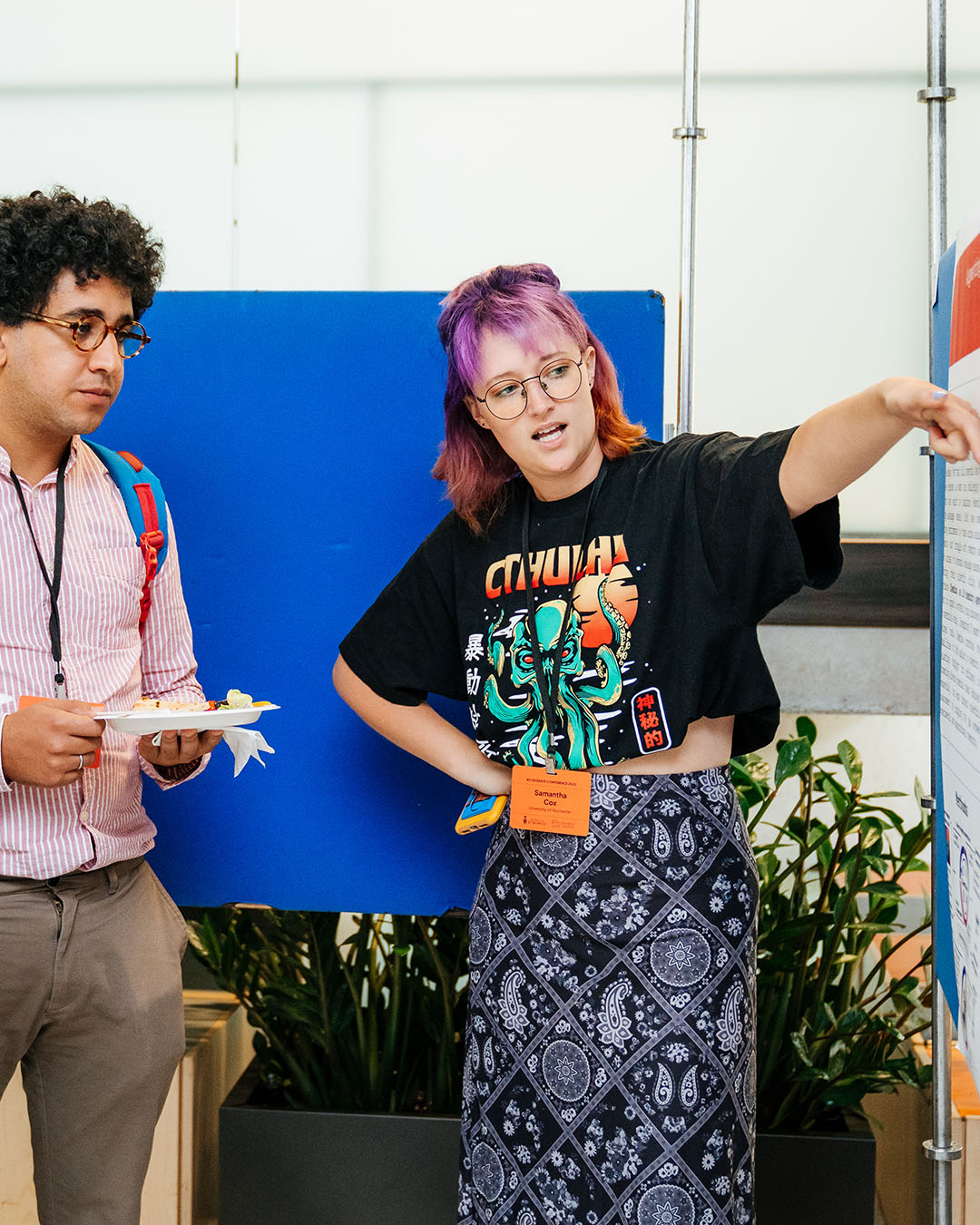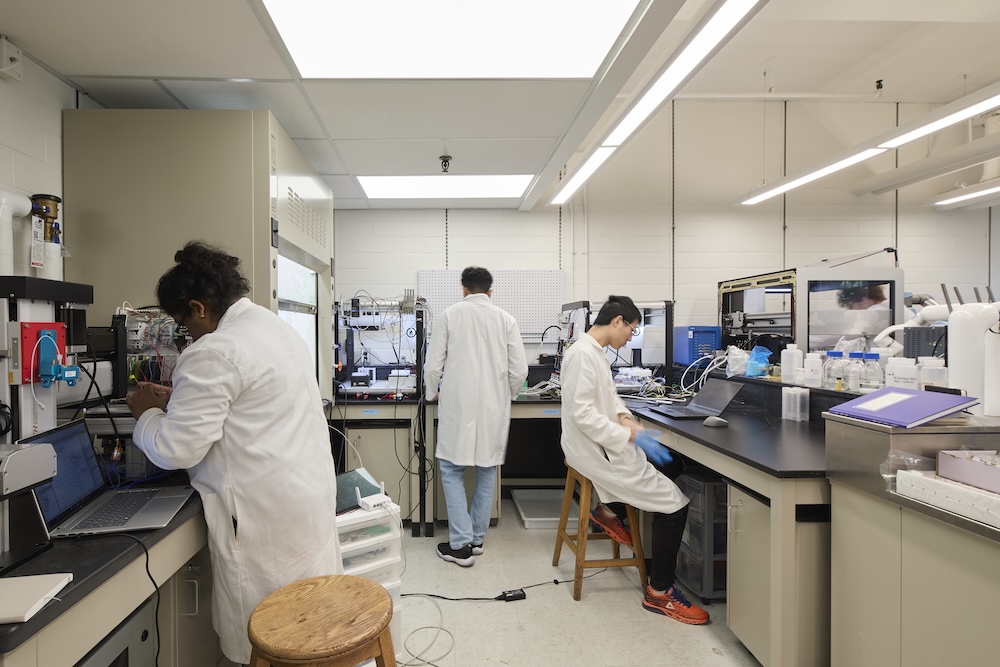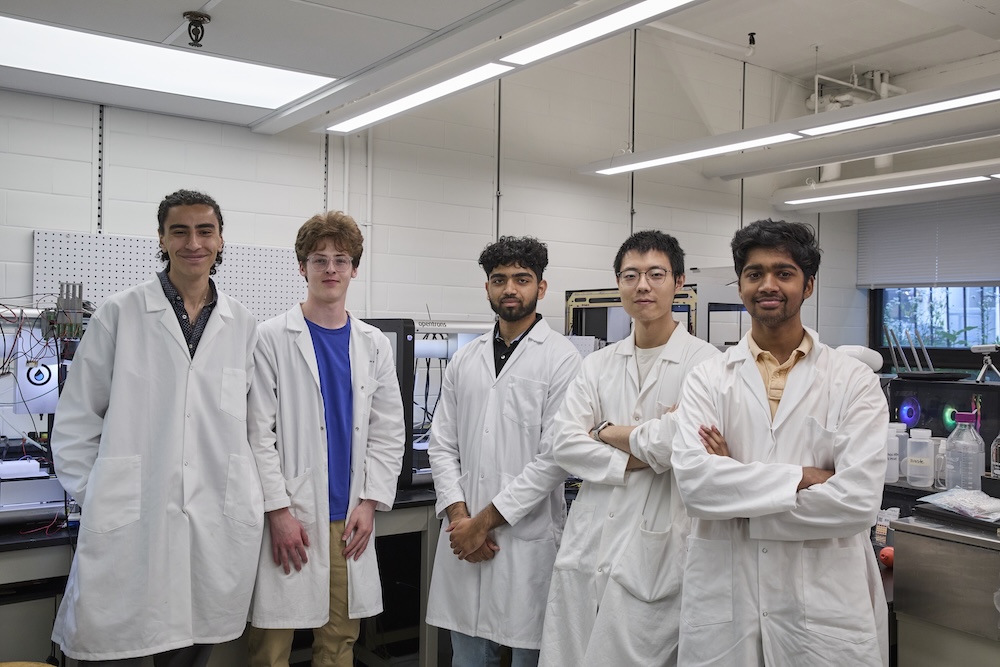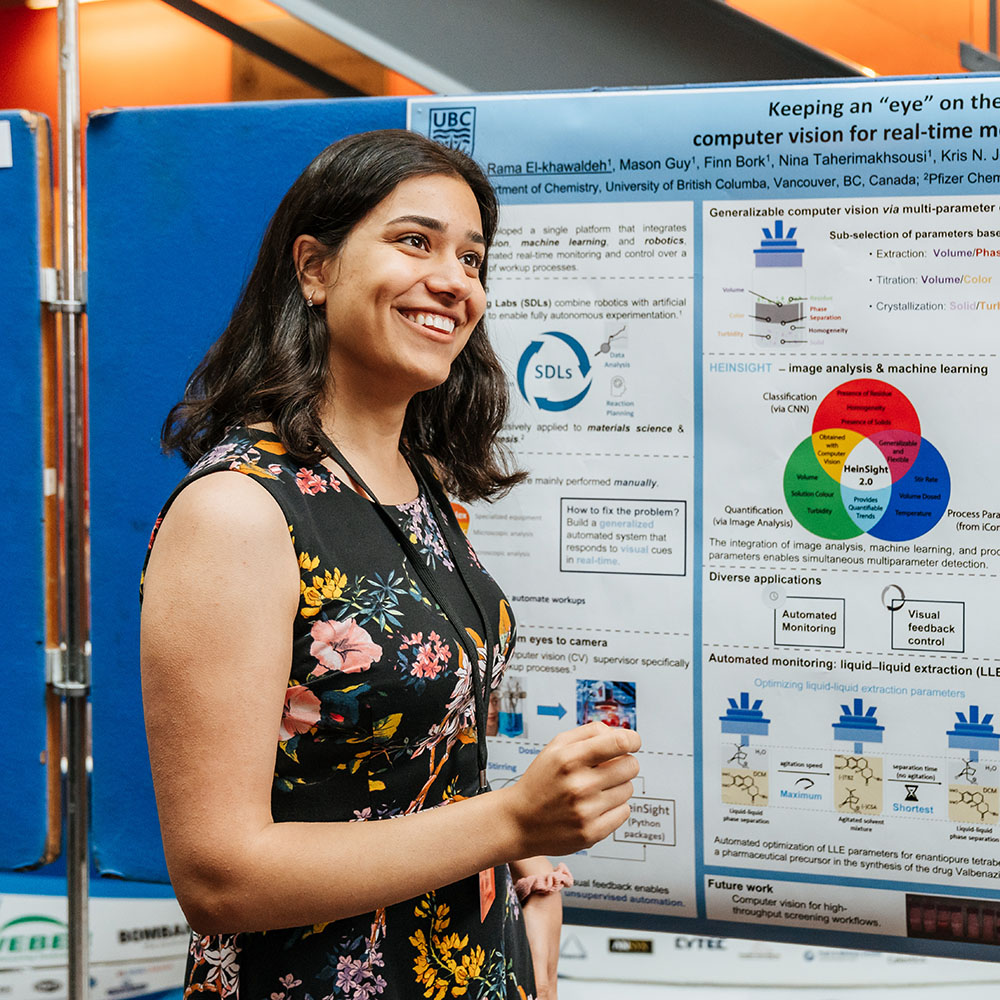Our equity, diversity, and inclusion (EDI) program
EDI at the AC
We are deeply committed to advancing equity, diversity, and inclusion (EDI) within the domain of accelerated materials discovery. We maintain a focus on the impact of innovation on EDI to ensure that we address rather than exacerbate social, economic, and environmental challenges of the discovery, optimization, and development of new materials.








Advancing Equity in Materials Discovery
We are working to address systemic inequities in research participation and representation, with a focus on cultivating a diverse and inclusive research ecosystem. The consortium seeks to dismantle barriers to entry and progression for groups under-represented in research, from early education through to the ranks of senior researchers and leadership. This includes racialized individuals; African, Caribbean, and Black individuals; Indigenous Peoples; persons with disabilities; women and individuals from 2SLGBTQIA+ communities. By creating equitable pathways for recruitment, retention, and advancement, the AC can ensure that diverse perspectives and contributions are integral to the discovery process. The AC is also dedicated to fostering an inclusive environment and a sense of belonging by providing equitable access to resources, funding, and professional development opportunities.
Through its interdisciplinary collaboration, ethical research practices, and commitment to inclusivity, the AC is making the future of materials discovery inclusive and a benefit to all. This visionary approach ensures that new technologies not only accelerate innovation but also contribute to a more just and sustainable world.
Initiatives
The AC has developed a concrete, evidence-based action plan to address systemic barriers and create equitable pathways for recruitment, retention, and advancement in this emerging field of science. Initiatives include:

Process maps to ensure EDI concerns are forefront in the development and implementation of AC programing

Expanding equitable access to mentorship and professional networks via high school and undergraduate research programs

Developing EDI education strategies to counter bias and build capacity

Supporting caregiver researchers to close gender gaps and reduce productivity losses due to caregiving responsibilities

Fostering equitable participation in research by providing funding for novel or student-led projects, programming, or events that address EDI barriers and challenges
